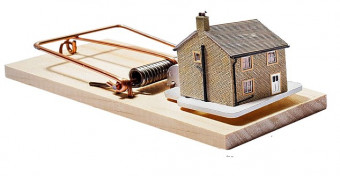A deposit is paid as a surety for the Buyer proceeding with the purchase. They are designed to protect the Seller should the Buyer be in default of the provisions of the Contract. Sometimes Buyers are caught out and lose their deposit because the Contract does not provide for their individual circumstances which may cause a delay in paying the deposit or meeting the Settlement date.
All contracts for the sale of residential property in Queensland contain provision for the payment of a deposit in either the form of a lump sum or by instalments to the stakeholder listed as on the Contract. The stakeholder is usually the Real Estate Agent, however if there isn’t one, or they don’t have a trust account, it is usually held by the Seller’s solicitor.
There is no requirement to pay a deposit, however the Seller usually requires one to be paid.
If after the cooling off period, you change your mind and decide not to proceed with the purchase, it is likely that you will forfeit your deposit. In addition, if the Seller suffers a loss which is greater than the amount of the deposit (such as where the Seller is forced to sell to another buyer for lower than the purchase price), you may be liable to make up that loss.
For this reason, it is very important that you obtain professional advice, both before entering a contract and before seeking to terminate a contract you have entered.
INITIAL DEPOSIT
The initial deposit is a sum which is due either on one party signing the Contract, or a calculated date after the signing, but prior to the Cooling Off date. If no latter date is specified, then the deposit is due when the Buyer signs the Contract.
BALANCE DEPOSIT
The balance deposit, if there is one, is a further amount which is due on a calculated date, usually on or after the unconditional date.
HOW MUCH IS PAYABLE?
We are commonly asked, what’s the normal amount for a deposit? Generally Sellers do not seek more than 10% or 20% of the purchase price for proposed/off the plan lots. If a payment exceeds this amount the contract may be considered to be an instalment contract. This will have unintended consequences for the Seller (such as preventing termination, restricting developers ability to mortgage the lots pending sale and allowing the Buyer to lodge a caveat to prevent the sale of a lot to another Buyer in the event default- see ss72, 73 and 74 of the Property Law Act). Apart from this, it is up to the Buyer and Seller to agree on how much deposit is warranted. We suggest that you discuss this with the Agent beforehand, as they will know if there is an amount the Seller is expecting as deposit. Also, if the Seller thinks the amount offered is low, they may not believe you are serious about buying the property and may refuse your offer.
DUE DATES FOR PAYMENT
So what does (or can) happen if you don’t pay your deposit by the due date? Well, you then become in default of the Contract. Once in default, the Seller may terminate the Contract and make a claim to recover the unpaid deposit. For example, if you paid an initial deposit of $1,000.00 however you were late to pay the balance deposit of $15,000.00; the Seller can terminate the Contract and sue you for the remaining $15,000.00.
If the deposit is paid on time and there is a Real Estate Agent involved, they will hold the deposit in their trust account until settlement. Once settlement has been completed they will usually (if their terms of appointment allow) deduct their Commission and pay any balance of the deposit to the Seller.
TERMINATION OF CONTRACT
If the Contract terminates under a condition of the Contract, the Seller may be entitled to claim the deposit as a penalty. You should seek legal advice prior to entering into a contract especially if you think that there may be future circumstances that may prevent you paying the Balance Deposit or even worse, meeting the Settlement date.
Just Us Lawyers – for the best Conveyancing lawyers in Brisbane call/email Just Us Lawyers or complete our enquiry form for a quote today



